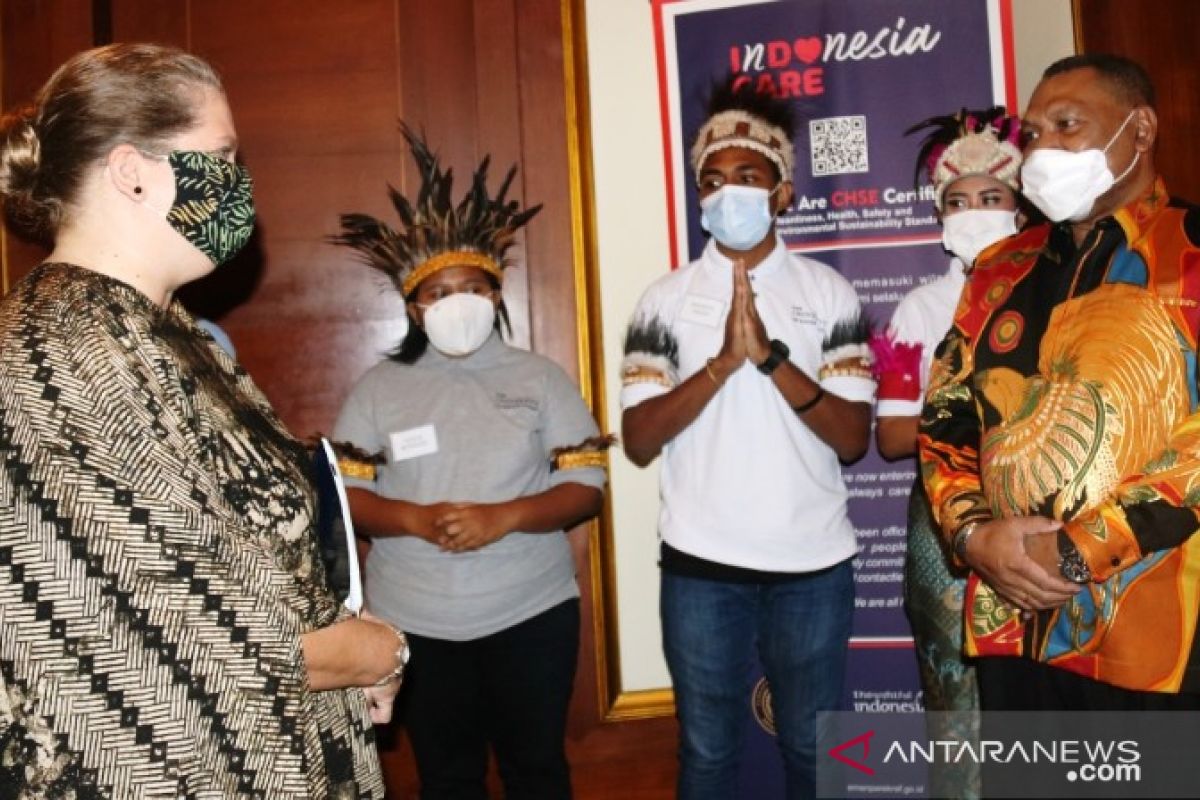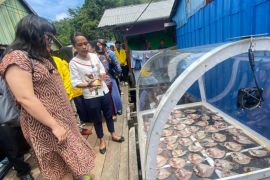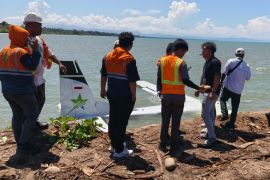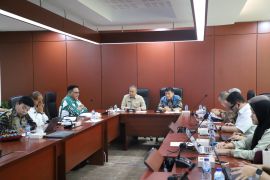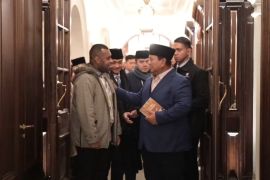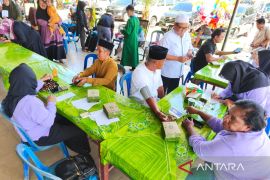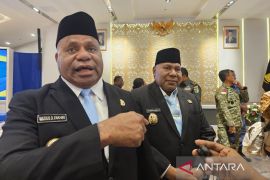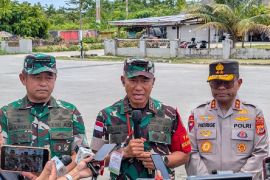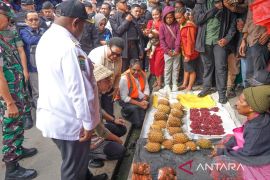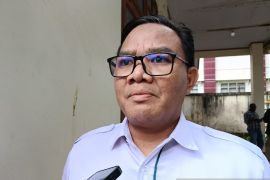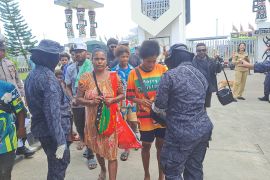On Thursday evening (June 17), Deputy Chief of the US Mission in Indonesia Heather Variava had met with the students scheduled to leave for Rhode Island at the end of June 2021.
They all are awardees of the special autonomy scholarship scheme, Head of Papua Provincial Government's Human Resources Development Agency (BPSDM), Aryoko A.F.Rumaropen, stated.
Prior to their admission at the selected universities, they will firstly learn English to improve their language proficiency and knowledge about the American culture for one semester, he noted in a press statement that ANTARA quoted on Monday.
Several of them would get registered for the associate program at Highline College prior to their studies at the University of Rhode Island or Johnson & Wales University, he remarked.
However, several others could commence their studies at the University of Rhode Island as second-year students, he noted, adding that two of the 24 native Papuans would undertake postgraduate studies.
Shortly after graduating from their universities, they are expected to return to Indonesia to implement their academic skills in various development sectors in Papua, Rumaropen added.
"Papua Governor Lukas Enembe has promoted cooperation in the education sector with various universities in the USA to help improve the quality of human capital among native Papuan communities," he said.
Hence, on behalf of the Papua governor, Rumaropen thanked the Indonesian Government and US Embassy in Jakarta for having provided native Papuan youths with opportunities to study in the United States.
The Indonesian Government has consistently demonstrated its strong commitment to boosting the development of the country's eastern regions, including Papua and West Papua Provinces.
The central government has also offered the Papua special autonomy law that has paved the way for significant amounts of funds to flow into Papua and West since 2001.
The Finance Ministry’s data indicated that during the implementation of the Papua special autonomy law, the government has disbursed Rp138.65 trillion for Papua and West Papua's special autonomy funds and additional funds for infrastructure projects.
Meanwhile, the total amounts of regional transfer and village funds that the government had disturbed to the two provinces from 2002 to 2021 were recorded at Rp702.3 trillion, according to People's Consultative Assembly (MPR) speaker Bambang Soesatyo.
Apart from the flow of the central government's significant amounts of funds into Papua and West Papua, the two provinces still struggle to improve the quality of their human capital as their scores in Indonesia's 2020 Human Development Index remained under the national average recorded at 71.94.
Statistics Indonesia (BPS) revealed that Papua and West Papua had recently scored 60.44 and 65.09 respectively on the 2020 Human Development Index. Their scores remained lower than that achieved by Aceh Province that stood at 71.94.
The BPS data released in February this year further showed that the poverty rates of Papua and West Papua were recorded at 26.8 percent and 21.7 percent respectively.
The development outcomes also remain inequitable for native Papuan communities as was apparent from their low income level and lack of access to education and health services.
In the midst of this challenging reality, the government has hinted its intent to extend the allocation of special autonomy funds for Papua and West Papua by another two decades to accelerate its endeavors to close the development gap and usher in prosperity for all communities in the region.
Related news: VP asks finance minister to consolidate Papua development funds
Related news: West Papua's residents should consistently follow health protocols
Related news: Contingent to Papua's PON urged to coordinate with security agencies
Translator: Hendrina DK, Rahmad Nasution
Editor: Sri Haryati
Copyright © ANTARA 2021
